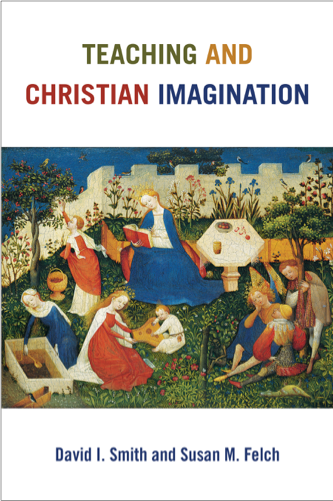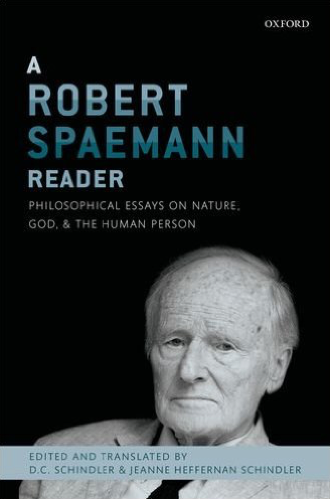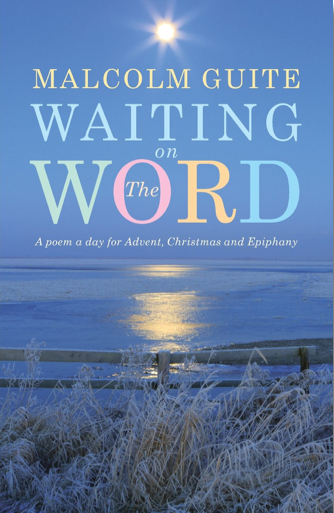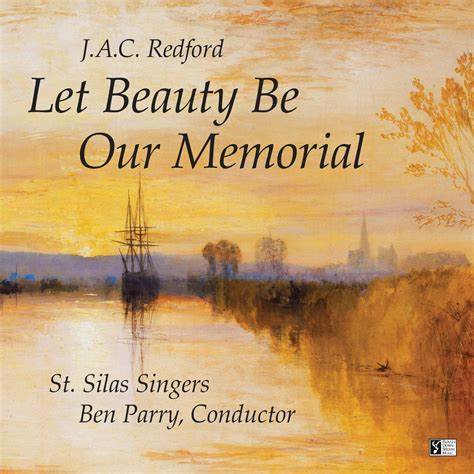PREVIEW
Guests heard on Volume 132

David I. Smith, co-author of Teaching and Christian Imagination, on how metaphors assumed by teachers lead them to imagine the vocation of teaching
read more
Susan Felch, co-author of Teaching and Christian Imagination, on how the metaphors of gardens, building, and feasting can inform the task of education
read more
D. C. Schindler, translator of A Robert Spaemann Reader: Philosophical Essays on Nature, God, and the Human Person, on philosopher Robert Spaemann’s understanding of a teleological nature
read more
Malcolm Guite, author of Waiting on the Word: A Poem a Day for Advent, Christmas, and Epiphany, on his seven sonnets based on the ancient “O Antiphons” sung traditionally during Advent
read more
J. A. C. Redford, composer of “Let Beauty Be Our Memorial,” on setting Malcolm Guite’s “O Antiphon” sonnets to music
read moreRelated reading and listening
- Music that conveys spiritual truths —
FROM VOL. 137 Musicologist Michael Marissen discusses the masterful way in which J. S. Bach uses musical idiom and quotation by way of theological counterpoint to the texts of his sacred vocal works. (13 minutes) - Countering American apathy toward history —
FROM VOL. 124 Historian John Fea discusses how American and Protestant individualism continues to influence our orientation toward the past. (22 minutes) - Education that counters alienation — In this lecture, Jeanne Schindler explores how digital technologies warp not only education but our experience of being human. (30 minutes)
- Education vs. conditioning — Education necessarily involves metaphysical and theological preconditions, and Michael Hanby argues that our current education crisis is a result of society rejecting these preconditions. (41 minutes)
- Knowing by heart — D. C. Schindler reflects on Plato’s idea of “conversion” in education, assuming the symbol of the heart as the center of man. (39 minutes)
- Education as a pilgrimage and a mystery — In this lecture, James Matthew Wilson gives a compelling argument for understanding the role of a literary or poetic education as an immersion of the whole being in truth and beauty. (43 minutes)
- Submission to mathematical truth — In this lecture, Carlo Lancellotti argues that integration of the moral, cognitive, and aesthetic aspects of mathematics is needed in a robust liberal arts mathematics curriculum. (25 minutes)
- Gifts for a baby King — Ken Myers introduces listeners to various musical compositions created for Epiphany (January 6), the Church’s feast day celebrating the revelation of Christ to the world. (25 minutes)
- Seven Messianic titles, seven attributes of Christ — Ken Myers introduces listeners to four composers who each have set all seven of the O Antiphons to music. (17 minutes)
- A prophetic “wake-up call” — In this 2024 lecture honoring the bicentennial of George MacDonald’s birth, Malcolm Guite explores MacDonald’s power to awaken readers’ spirits and effect in them a change of consciousness. (59 minutes)
- Seasons and everyday saints — Sylvie Vanhoozer introduces a French Advent tradition that involves a community of “little saints” whose stories have something to teach us about following Christ throughout the year. (28 minutes)
- The gift of meaningful work — In this lecture, D. C. Schindler argues that genuine work is inherently meaningful and facilitates an encounter with reality and therefore, ultimately, with God. (36 minutes)
- What higher education forgot —
FROM VOL. 84 Harry L. Lewis discusses higher education’s amnesia about its purposes, and how that shortchanges students. (19 minutes) - The formation of affections —
FROM VOL. 101 James K. A. Smith explains how education always involves the formation of affections and how the form of Christian education should imitate patterns of formation evident in historic Christian liturgy. (15 minutes) - A Christian philosophy of integrated education —
FROM VOL. 61 Michael L. Peterson discusses how Christianity could inform society’s understandings of education and human nature. (8 minutes) - Education for human flourishing — Co-authors Paul Spears and Steven Loomis argue that Christians should foster education that does justice to humans in our fullness of being. (23 minutes)
- The social irrelevance of secular higher education —
FROM VOL. 85 Professor C. John Sommerville describes the increasingly marginal influence of universities in our society, and why they seem to be of no substantive relevance to people outside the school. (13 minutes) - The history of Christianity and higher education —
FROM VOL. 50 In tracing Christianity’s relationship to the academy, Arthur F. Holmes points to Augustine as one of the first to embrace higher learning, believing God’s ordered creation to be open to study by the rational mind of man. (9 minutes) - Is liberalism compatible with religious freedom? — D. C. Schindler relies on two Thomistic axioms to illustrate why liberalism — which claims to offer a minimalist conception of the common good — is ultimately incompatible with a Catholic understanding of religious freedom. (34 minutes)
- In praise of a hierarchy of taste — In a lecture at a CiRCE Institute conference, Ken Myers presented a rebuttal to the notion that encouraging the aesthetic appreciation of “higher things” is elitist and undemocratic. (58 minutes)
- The formative power of hymns and hymnbooks —
FROM VOL. 149 Christopher Phillips discusses the cultural and spiritual effects of hymns and the “thingness” of hymnals. (18 minutes) - Congregational singing in Martin Luther’s time —
FROM VOL. 137 Liturgical scholar Robin Leaver clarifies some misconceptions about Martin Luther’s commitment to congregational singing. (10 minutes) - Early 19th-century hymnody —
FROM VOL. 151 Musicologist Peter Mercer-Taylor tells the story of how early 19th-century hymnody introduced many Americans to a repertoire of classical music. (27 minutes) - How music reflects and continues the created order — Musician, composer, and teacher Greg Wilbur explores how music reflects the created order of the cosmos. (55 minutes)
- On wonder, wisdom, worship, and work — Classical educator Ravi Jain dives deeply into the nature, purpose, and interconnectedness of the liberal, common, and fine arts. (43 minutes)
- Orienting reason and passions — In an essay titled “The Abolition of Mania” (Modern Age, Spring 2022), Michael Ward applies C. S. Lewis’s insights to the polarization that afflicts modern societies. (16 minutes)
- The rediscovery of meaning — Poet and theologian Malcolm Guite explains Owen Barfield’s idea of the development of consciousness over time, an evolution made evident through language that reveals an earlier, pre-modern way of seeing the world. (63 minutes)
- Martyrdom and music — To mark the feast day of the Martyrdom of Polycarp, we offer an interview from 2004 with composer J. A. C. Redford and poet Scott Cairns about their work together on an oratorio based on the story of Polycarp’s death. (15 minutes)
- Redford, J.A.C. — FROM THE GUEST PAGE: J.A.C. Redford is a composer, arranger, orchestrator and conductor of concert, chamber and choral music, film, television and theater scores, and music for recordings.
- Felch, Susan M. — FROM THE GUEST PAGE: Susan M. Felch is Professor of English, Emerita, at Calvin University. Her research interests have focused on sixteenth-century British authors, especially women.
- Christian education and pagan literature — Kyle Hughes on learning from Basil of Caesarea about the curricular choices for Christian educators
- Political community and the good — D. C. Schindler on why political life is inevitably “a particular interpretation of the highest human good”
- In the image of our devices? — In light of the history of the meaning of intellectus, D. C. Schindler questions the use of the word “intelligence” to describe systems employing large language models. (18 minutes)
- Smith, David I. — FROM THE GUEST PAGE: Dr. David I. Smith has written widely and worked extensively with educators at all levels of education on questions of how faith relates to the practice of teaching.
- In tune with the muses of Zion — Ken Myers on the Christmas music of Michael Praetorius
- In dulci jubilo — Ken Myers introduces some of the music for the season composed by Michael Praetorius (1571–1621), best known for his settings of Es ist ein Ros entsprungen (“Lo how a rose e’er blooming”) and In dulci jubilo. (18 minutes)
- Mars Hill Audio Journal, Volume 160 — FEATURED GUESTS: Jessica Hooten Wilson, Kyle Hughes, Gil Bailie, D. C. Schindler, Paul Tyson, and Holly Ordway
- Teaching for wonderfulness — Stratford Caldecott on why education is about how we become more human, and therefore more free
- Education and human be-ing in the world — In championing a classical approach to teaching, Stratford Caldecott was an advocate for a musical education, affirming the harmonious unity in Creation. (26 minutes)
- Maintaining a connected grasp of things — Ian Ker summarizes the central concern of John Henry Newman’s educational philosophy as developed in The Idea of a University
- The university and the unity of knowledge — Biographer Ian Ker discusses John Henry Newman’s understanding the goal of “mental cultivation.” (17 minutes)
- The future of Christian learning — Historian Mark Noll insists that for Christian intellectual life to flourish, a vision for comprehensive and universal social and cultural consequences of the Gospel has to be assumed. (18 minutes)
- Earthly things in relation to heavenly realities — In this lecture, Ken Myers argues that the end of education is to train students to recognize what is really real. The things of this earth are only intelligible in light of heavenly realities. (59 minutes)
- Schindler, D. C. — FROM THE GUEST PAGE: Dr. Schindler’s work sheds light on contemporary cultural challenges by drawing on the resources of the classical Christian tradition.
- The Symbol of Authority — In the second of two lectures given by D. C. Schindler, he explores the nature of authority with reference to the transcendental dance of Truth, Goodness, and Beauty. (60 minutes)
- The Authority of the Symbol — In this lecture presented at the CiRCE Institute national conference, D. C. Schindler presents a metaphysical description of what symbols are. (54 Minutes)
- Sustaining a heritage of wisdom — Louise Cowan (1916–2015) explains how the classics reach the deep core of our imagination and teach us to order our loves according to the wholeness of reality. (16 minutes)
- The mysteries and glory of Christmas and its music — Ken Myers presents examples of music from five centuries that capture some sense of the astonishing fact of the Nativity of our Lord. (15 minutes)
- The music and the notes are precious — Ken Myers encourages an understanding of the Church as a particular culture that should be nourished and sustained, and then describes the history of an Advent hymn written by St. Ambrose. (27 minutes)
- Parsing the intellectual vocation — Norman Klassen and Jens Zimmermann demonstrate that some form of humanism has always been central to the purposes of higher education, and insist that the recovery of a rich, Christocentric Christian humanism is the only way for the university to recover a coherent purpose. (39 minutes)